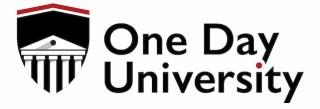
The attraction of returning to college years later is offset with the reality of exams, early and/or boring classes. The folks at One Day University have expanded their success on the east coast in addressing those issues by assembling a faculty for their first series of west coast curricula.
I attended a recent One Day University at the always pleasant Skirball facility, and came away duly impressed. The faculty was erudite, eclectic and thought provoking. The price was a bit of a barrier ($295), but that did not seem to stop the mostly white, salt and pepper haired audience. The auditorium was nearly filled for the day’s curriculum of four classes.
Columbia University’s Andrew Delblanco laid out the ways Lincoln’s philosophy and rhetoric have permeated modern political discourse, paralleling the way Shakespeare’s words have become engrained in our culture. Both political parties in the 2008 Presidential campaign have co-opted Lincoln. Professor Delblanco compared the challenges Lincoln faced when he took office to those challenges either McCain or Obama will have on his desk in January 2009, and concluded that Lincoln’s troubles were far greater.
The studious audience seemed receptive to Delblanco’s veiled leftward political leanings. He pointed out Lincoln’s massive hurdles in overcoming the religious and political establishing precedent for slavery; both the Bible and the Constitution explicitly support the existence of slavery. Lincoln’s solution? Relying on the Declaration of Independence (what Delblanco calls ‘our nation’s scripture’).
Delblanco astutely spanned our nation’s history, from pre-Revolution to 1960s Martin Luther King to the current Presidential campaign, to elucidate Lincoln’s place in US history.
Harvard professor Shawn Achor presented a humorous, insightful and gently self-deprecating discussion on positive psychology. He cited various studies that indicate our society has ten times more depression now than during the Great Depression. More intriguingly, he translated these studies into steps that effectively improve happiness (to oversimplify: gratitude, journaling, simplify, exercise, meditation).
A lecture in history was provided by Marcelo Gleiser, who teaches natural philosophy, astronomy and physics at Dartmouth. He presented the three types of creation myths as a lens through which man tackles the big questions: who are we, where do we come from, how do we know. Gleiser eloquently discussed the confluence of scientific and spiritual beliefs. I would have enjoyed more detail around my favorite classical quotation: you can’t stand in the same river twice. But so lays the challenge of covering 2500 years of science and philosophy in one hour.
But that one hour was a great review of thinkers from Socrates to Heraclitus to Copernicus to Einstein, many of whom I hadn’t sufficiently considered since college. It’s always good to exercise your neurons trying to get your head around the space/time continuum.
Professor Steven Lamy came across town from USC to present an analysis of US foreign policy. He compared and contrasted the four core traditions: Jeffersonian, Jacksonian, Hamiltonian and Wilsonian. Lamy concluded by assaying the approaches shown by McCain and Obama.
My only wish is that my attendance had been during a rainy day, it was tough giving up a sunny day for a series of lectures. Just like in college.




Recent Comments